Editor’s Note: CNN Insider Guides are thoroughly checked for accuracy. Given the fluid nature of the travel industry, however, some listings may fall out of date before guides can be updated. The best practice is to confirm current information on official websites before making plans to visit any business or attraction.
You can shop at brilliantly lit malls at 4 a.m., sing karaoke an hour later, then get McDonald’s delivered to your doorstep for breakfast when you’re visiting Seoul.
The city’s 10.4 million residents can also brag about the world’s top airport (ice rinks and movie theaters included) and a stunningly efficient public transportation system featuring high-tech details from massive touch-screen displays at subway stations to tickers at bus stops announcing which bus is coming when.
Business travelers like to drop by the centuries-old temples and palaces for a quick walk on the way to meetings in the Jongno financial district, while design fanatics devise their own tours of the latest skyscrapers and stadiums.
Leisure travelers revel in the nightlife of drinking in tents and clubbing until sunrise. And foodies? They make a beeline for the spicy food, street food, live food and barbecue … and do it all with buckets of soju.
Here’s where to find the best of Seoul:
Hotels
Luxury
The Shilla
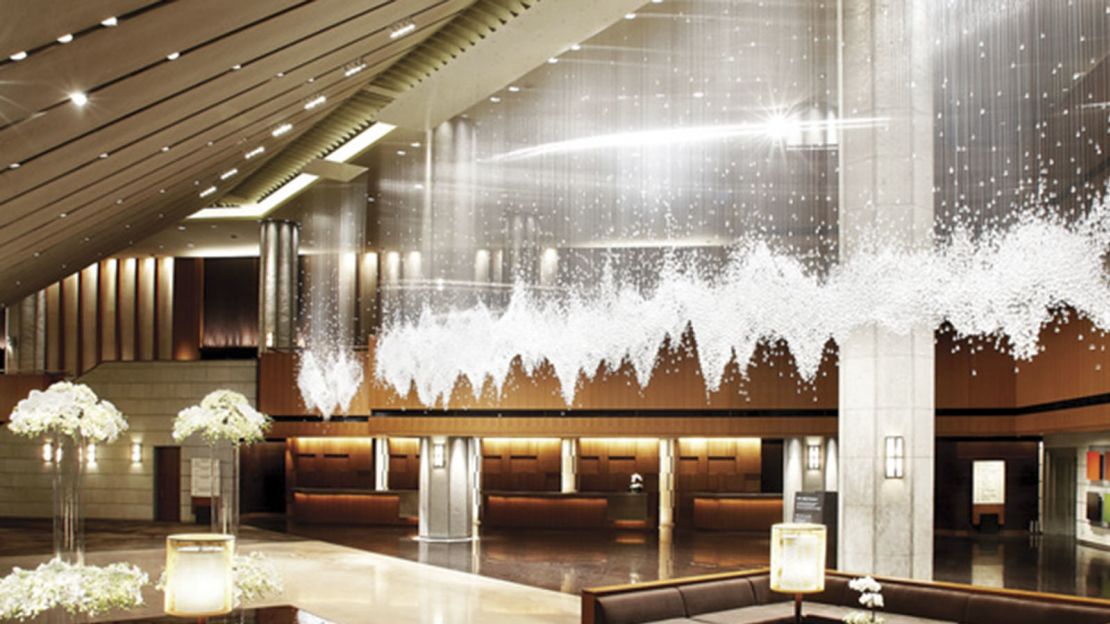
One of the fanciest, if not the fanciest hotel in South Korea, The Shilla has the prices and luxurious details to prove it. Having reopened after months of extensive renovations, the luxury hotel is now one of the few in Seoul that actually houses a high-end Korean restaurant, La Yeon.
Headed by Lee Boo-jin, fashionable daughter of Samsung chairman Lee Kun-hee (with a net worth of more than $10 billion, making him the richest man in South Korea, according to Forbes), The Shilla features ornate traditional Korean roof lines and a sweeping driveway, not to mention convenient parking, unusual in Korean hotels.
In addition to the most expensive and sumptuous Chinese restaurant in the country, this best of Seoul hotel also has the most well-stocked and frequently updated duty-free store.
Anyone looking for an unusual sleeping experience can book the Korean-style suite, with a traditional Korean interior and option of sleeping on traditional thick blankets on the floor (?800,000/$700 per night).
Park Hyatt
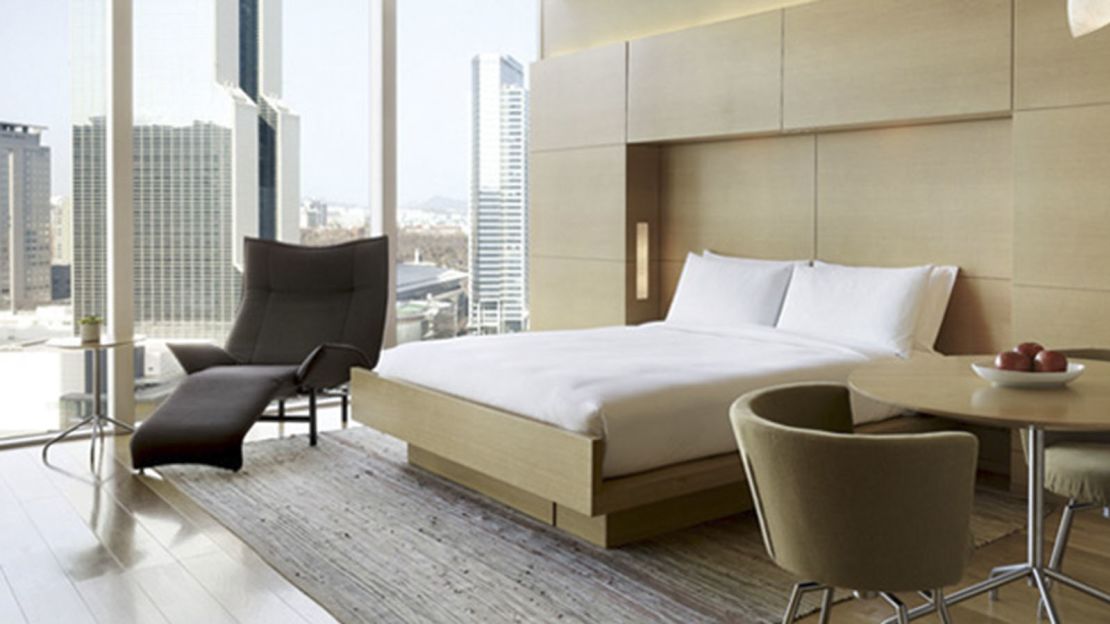
We can’t tell if the Park Hyatt Seoul is trying to be mysterious or understated. Whatever the case, it maintains a low profile, considering its impeccable offerings and great service. All rooms have floor-to-ceiling windows – even the bathrooms – while the swimming pool at the top of the building is a work of art with shiny glass walls and great view of Gangnam.
Westin Chosun
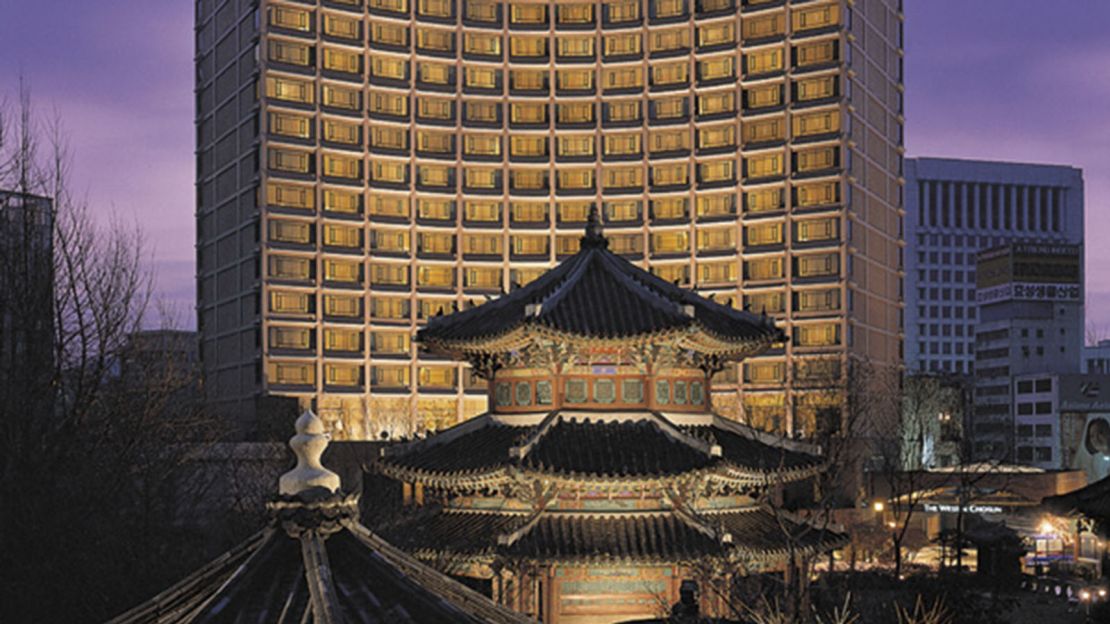
Along with its extremely modern next-door neighbor, The Plaza, the recently renovated Westin Chosun has Seoul’s best location for the business traveler or first-time visitor.
The Lotte Department Store and Myeong-dong shopping district are a few steps away, as is the Euljiro-1-ga subway station. The hotel’s deli, Vecchia and Nuovo, has some of the tastiest sandwiches in Seoul – the chicken curry is near perfect.
Mid-range
IP Boutique Hotel
With its distinctive, multicolored exterior, the IP Boutique Hotel manages to be an Itaewon landmark without quite joining the chaos of the party district in earnest. The lobby is open and sociable and the location is ideal.
IP Boutique hotel straddles the parties of the Itaewon strip on one side – walk toward Itaewon Station and you’ll pass hotspots like Boom Bar and B1one before hitting Glam – and the quiet, pretty neighborhood of Hannamdong on the other.
Ibis Myeongdong
Among budget hotels, the Ibis Myeongdong’s selling point is location. The hotel itself is basic, which isn’t necessarily a bad thing. There’s nothing lacking; the 280 rooms are clean and have free Wi-Fi. But not much else.
Then again, why would it need anything else? The hotel is right at the center of the lively sprawl of shopping and dining that is Myeongdong.
Budget
Hanok Homestay
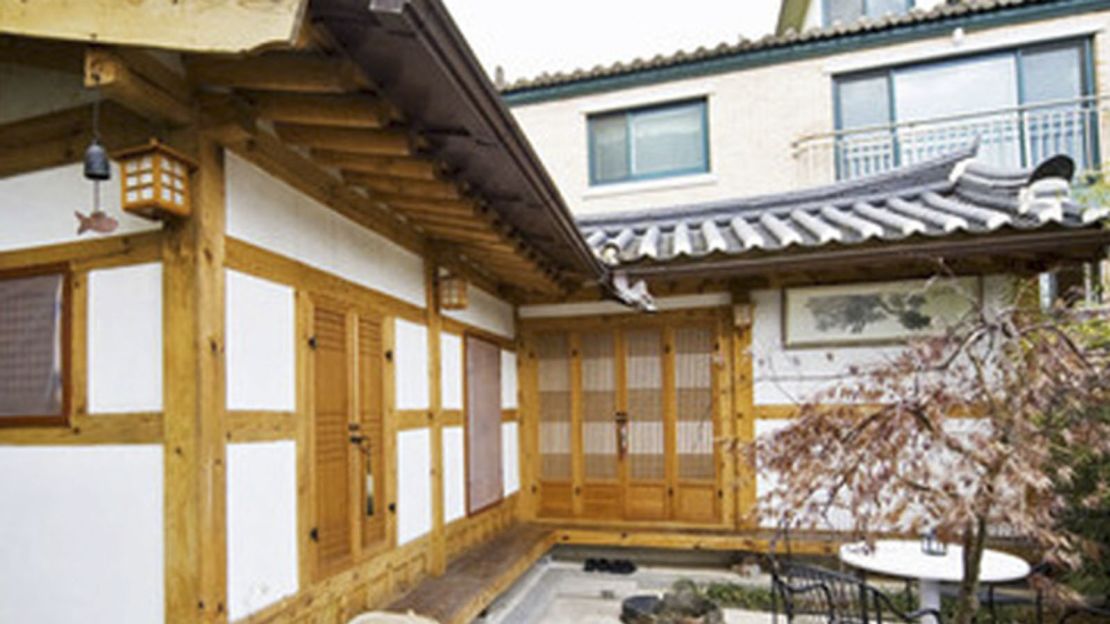
Hanok Homestay offers a chance to sleep in a traditional Korean house, interact with a Korean family and learn traditional culture firsthand. The program hosts activities for guests, including making kimchi, trying on hanbok (traditional Korean dress) and learning calligraphy or traditional instruments.
Hanok Homestay, 50 Sambong-gil, Jongno-gu (??? ??? 50); +82 2 731 0114
Photos: 40 most beautiful places in South Korea
Dining
Baesangmyeonjuga
Run by a traditional Korean liquor company of the same name, Baesangmyeonjuga features a fusion Korean menu in a modern setting. Its location in the basement of the Finance Center, along with its decent prices and good food, makes it a solid option for lunch and dinner. If you can get a table, that is.
Recommended dishes: galbi with salad and mushrooms; smoked duck breast with omija sauce; and spicy dakgalbi. Living up to its pedigree, this best of Seoul restaurant features a tasting menu of the company’s various liquors, including a milky, fizzy and delicious makgeolli.
Baesangmyeonjuga, Jung-gu Taepyeongro-1-ga 84 Finance Center B/1 (?? ???1? 84 B1F); +82 2 773 3238
Jung Sik Dang
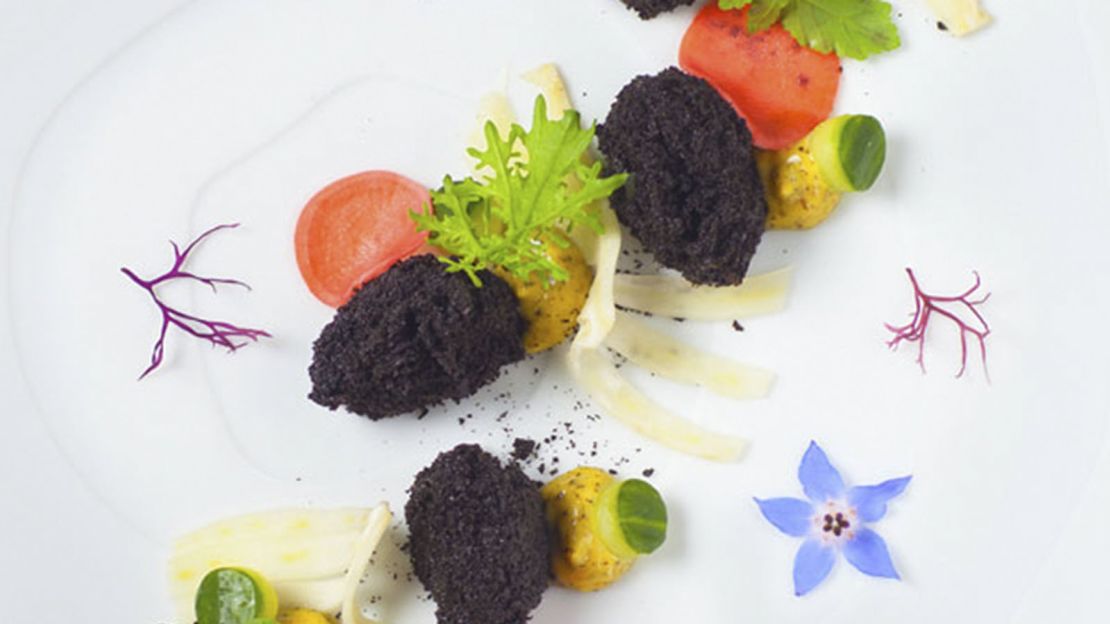
Some fans of Korean food may swear by grilled pork in a smoky, cramped restaurant, and while samgyeopsal is undeniably tasty, sometimes it’s nice to enjoy a meal without donning a bib to keep off the grease splatters.
Jung Sik Dang is undeniably upscale, in both price and ambiance, but offers good value despite the disproportionately large plates. Unlike traditional Korean course meals (hanjeongsik), Jung Sik Dang dishes feature interesting culinary juxtapositions such as foie gras with chicken, sea urchin in a bibimbap or anchovies in a paella. A lunch set is a good way to sample a variety of dishes, and will set you back ?44,000 ($41).
Maple Tree House
Maple Tree is one of the most popular barbecue joints in the city, well known for not only its food but also English-speaking staff and classy interior designs. If you’re not the best meat-flipper, not to worry. Smiling waitresses are standing by to make sure every little piece of meat is cooked to perfection.
If you’re with a larger party, it’s best to try all the meats one at a time. Korean Jeju black pork is a smart starter, followed by pork jowl, rib eye and marinated boneless short ribs.
Korean cooking with Anderson Cooper and Anthony Bourdain
Dominic
Billing itself as a Western-style restaurant, Dominic’s deceptively natural wood-and-metal interior and vaguely Italian menu still has subtle hints of Korea, like the pork (samgyeopsal) fusilli or barley risotto.
Dominic has carved out a niche as a dependable place to get steak, and while “Seoul’s best steak” might be an exaggeration, dependable is a fair description. Anyway, this Hannamdong dining fixture has other draws, like the wall-to-ceiling glass windows, which provide a pretty view of the neighborhood.
Manager Lee Jeong-cheol recommends the blue cheese beet salad (?18,000/$17) and the New York strip steak (?38,000/$35).
Dominic, 638-133 Hannam-dong, Yongsan-gu (??? ??? 683-133); +82 790 7588
Bibigo
Bibigo offers a modern take on the signature rainbow-colored bibimbap bowl. It’s a place that even younger Seoulites have started to rave about. Yes, it’s a chain that has an assembly line, but unlike many other chains, you get a healthy, delicious bowl of salad and rice instead of a sad, floppy sandwich.
While bibimbap is normally served with a spicy red pepper paste, Bibigo offers milder alternatives, such as sesame dressing and citron soy sauce. All the choices for toppings (bulgogi, chicken teriyaki, chicken breast, tofu, pork, shrimp) and rice (white, black, brown, barley) are delicious.
Bibigo, Officia Building, 163 Sinmunri-1 ga, Jongro-gu (??? ???1? 163 ??????); moderate; +82 2 730 7423
Si Wha Dam
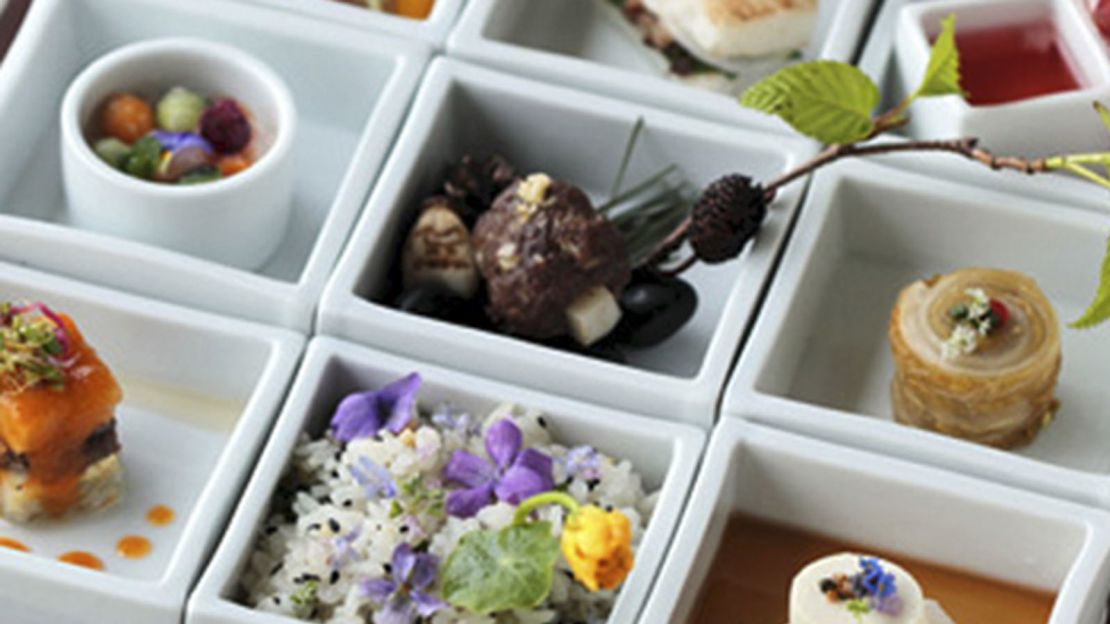
This modern Korean fine dining restaurant looks like an art gallery on the outside and a modern museum on the inside.
Each course at this best of Seoul choice is served as if it were a work of art, with menus printed on handmade paper scrolls, food brought in on hand-crafted artisan plates and poems delivered alongside the food. In addition to the visual displays, the prices are low. Whether you’re closing a deal for transmissions or romance, this is the place to make the person you’re treating feel like a million bucks.
Lunch courses start at ?100,000 ($88) for 13 courses over one and a half hours. Dinner starts at ?150,000 ($130) per person for 15 courses over two hours. The most expensive menu (both lunch and dinner) is ?350,000 ($310) per person for 23 courses.
Pierre Gagnaire à Séoul
Pierre Gagnaire’s original Michelin three-star restaurant in Paris ranks 17th on this year’s S.Pellegrino list of the world’s 50 best restaurants. Meanwhile, the Seoul restaurant was ranked eighth in Asia by the Miele Guide 2011/2012. The wine list is hundreds of labels long, the interior is inspired by the secret garden at Versailles and the food is creative and excellent.
Nightlife
Glam
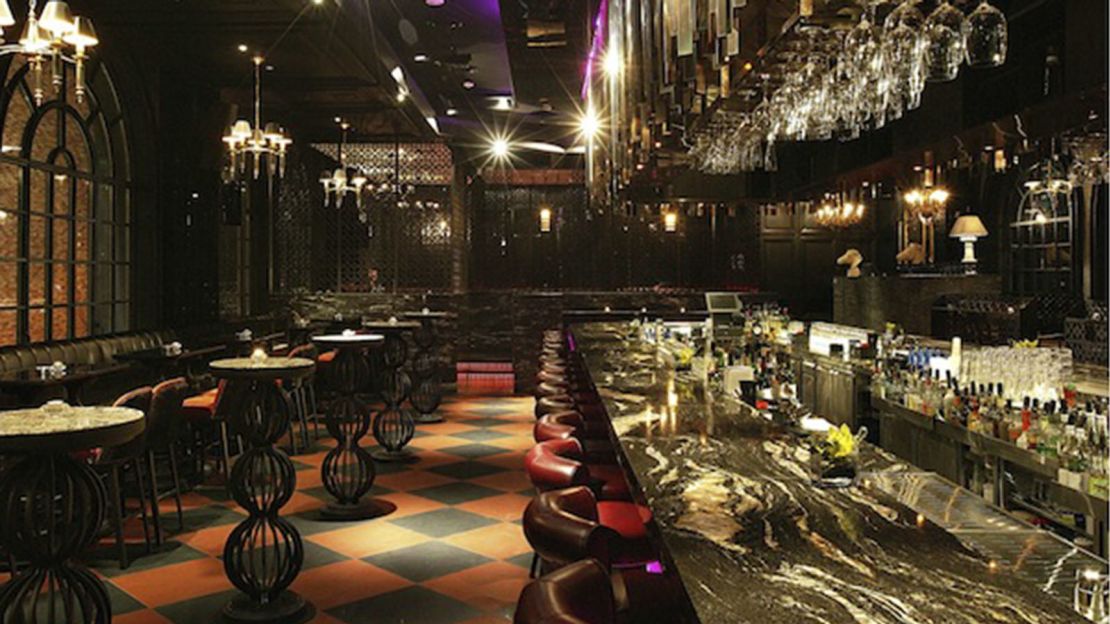
The Itaewon area is already famous for posh bars and eateries, but the most recent talk of the town has been District, which consists of a pub, lounge and club. The Glam lounge is on the second floor. It offers good drinks, edgy yet classic interiors and a huge crowd every night.
It’s popular with expats, college students, executives – basically anyone looking to party. To soak in the place, you can do the entire tour: pub Prost on the first floor, Glam on the second and club Mute on the third.
Glam, Hamilton Hotel Annex, 116-1 Itaewon-dong, Yongsan-gu (??? ???? 116-1); +82 2 796 6853
Drinking in South Korea: 7 tips on handling a hoesik
Octagon
Octagon is well over a year old now, but it remains trendy with its state of the art sound system, and sheer size. The fact that it counts Jessica Alba as one of its past visitors doesn’t hurt.
Octagon beat out Club Ellui for the title of largest club in the country, with three underground floors adding up to 3,305 square meters. The club features huge LED sliding screens, a swimming pool and suspended stage. The music is mostly electronic, trance, house and techno.
Octagon, New Hilltop Hotel, Gangnam-gu, Nonhyun-dong 152 (??? ??? 152); +82 2 516 8847
Wolhyang
Wolhyang is a makgeolli bar that doesn’t look like a makgeolli bar. In fact, it doesn’t look much like a bar at all, with warm colors and yellow lighting, Korean indie pop rock playing at a reasonable level and even a well-lit reading corner with bookshelves.
Patrons can order from a menu of fusion dishes rather than traditional makgeolli fare like white kimchi or pajeon (Korean savory pancakes). Revelers accustomed to makgeolli served in dented kettles, consumed while sitting cross-legged on the floor of a Korean-style pub, might react suspiciously to how pretty the place is. But with undeniably excellent and organic makgeolli served in tall glass jars – available in proofs of up to 15%, or in cocktails with flavors like honey, citrus, apple and tomato – the comfortable interior is a plus.
Timber House
The hotel itself is strictly modern, with large mirror-like windows and elegant lighting. But the TImber House offers a cozier atmosphere, with interiors based on traditional Korean architecture.
The drinks are impeccable, especially award-winning cocktails based on the traditional liquor, soju, while the cigars have also made the bar a popular spot for smokers.
Shopping / Attractions
10 Corso Como
The Seoul location of the Milanese concept store 10 Corso Como opened in 2008 and has established itself as a distinctive haven of art, design, fashion and food in the tony Cheongdam neighborhood. Even if the price tags on the 10 Corso Como brand items and other exclusive designer pieces in stock have one too many zeroes for your budget, browsing is free. And the store itself is worth a look, from the foyer designed by Kris Ruhs, to the restful outdoor cafe. There’s a second location in Myeongdong, which opened in 2012.
Dragon Hill Spa
A jjimjilbang is a public bathhouse with separate baths for men and women and a joint resting area with a sauna or more – the fancier the jjimjilbang, the more varied the saunas.
In this sense, Dragon Hill Spa is like the many other 24-hour jjimjilbangs scattered across Seoul. Patrons stash their clothes in a locker and receive a set of jjimjilbang clothes and two towels. In their jjimjilbang outfits they’re free to roam the saunas or catch a nap on some unoccupied space of the heated floor.
But the Dragon Hill Spa rises (literally) above the typical jjimjilbang with its multiple floors of entertainment: a swimming pool in the basement, extensive arcade on the first floor, plus a PC bang, tiny indoor playground, movie theater (no seats, just a projection screen and heated floor), restaurants, snack bars and more. You can also get your nails done, eyelashes lengthened and back massaged.
Then, of course, there are the saunas, of various temperatures and materials and different health benefits. If you haven’t heard of this best of Seoul palace, you’re probably one of the last. The place can get incredibly crowded on weekend nights, as exhausted partygoers from neighboring clubs come to shower and crash.
MO Jain Song
From Korean designer Jain Song, this is one of the newest additions to Seoul’s crop of concept shops.
The place hasn’t even been around a year, but has already created buzz in its home neighborhood of Hannam-dong with its appealing terrace cafe and several stories of whimsical lifestyle items – everything from ridiculously expensive harmonicas to miniature toys for the kidult crowd. The store also features clothes from Jain Song, including items from her more accessible JLite line as well as her runway collection.
Mo Jain Song, 739-6 Hannam-dong, Yongsan-gu; +82 2 797 6231
Noryangjin Fisheries Wholesale Market
The Noryangjin Fisheries Wholesale Market is a market/eatery where you can choose what you want to eat while it’s still alive and have it served up then and there.
Some may find it a bit eerie to make eye contact with the fish you’re about to eat, and the blood and guts on the floor may also prove a challenge, but more often than not, foodie taste buds prevail.
Bongeunsa Temple
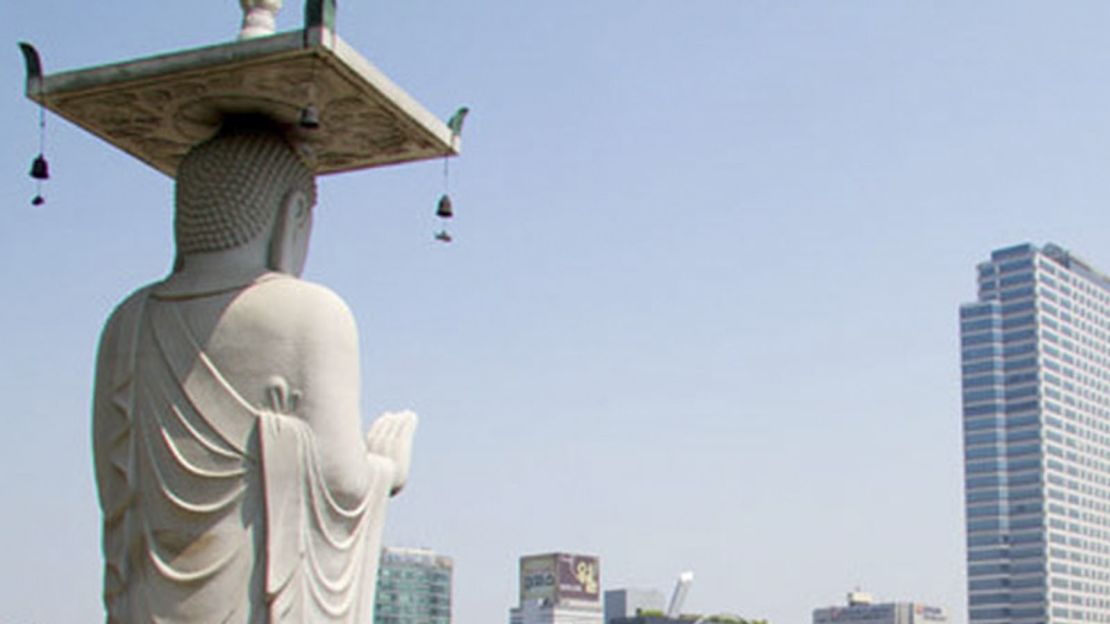
For photographers, Bongeunsa Temple is a best of Seoul place to shoot the contrast of elegant lines of Buddhist architecture against a skyscraper-studded backdrop. Like many other temples around Korea, Bongeunsa offers a two-day stay program, plus a one-hour temple-life program.
Every Sing
Run by SM Entertainment, the label behind idol groups Girls’ Generation and TVXQ, this flashy, colorful karaoke lounge is perhaps the most fun destination in the world of K-Pop. In addition to the original Apgujeong lounge, Everysing has lounges in four other places: Myeongdong, Coex Mall in Samseong, Gimpo Airport and even Incheon International Airport.
In addition to offering the entire stock of every song ever recorded under the SM Entertainment label (a vast library, if you consider the thousands of songs recorded by the prolific likes of Super Junior, BoA and H.O.T.) the Every Sing karaoke system syncs the official music videos of selected songs to play as you belt them out.
The second floor of the Apgujeong lounge features a gift shop selling everything from Girls Generation diaries to full portraits of Super Junior, and a sticker photo booth where customers can take pictures after dressing up in idol costumes actually worn in SM’s music videos.
Fun facts: SM Entertainment’s official auditions take place in the basement of the Apgujeong building; the company’s newly acquired travel agency opened a private lounge in the building on May 1.
Garosugil
For all that’s cute, twee and trendy, this pretty ginko-lined district in Sinsa-dong, Gangnam (literally “tree-lined street” in Korean) is all cafés, boutiques, bars and brunch places.
Popular with younger crowds – frequently, the younger female crowd, with the boyfriends they’ve dragged along for dates – Garosugil is lined with restaurants with fancy Western and fusion cuisine, galleries, elaborately decorated shop windows and a steady stream of equally decorated people. While the place becomes crowded, particularly in evenings or on weekends, people-watching is yet another facet of its charm.
Garosugil is in Sinsa-dong, Gangnam-gu, and is accessible via subway from Sinsa Station (Transit Line 3). A brisk walk will get you from the subway to the street in 15 minutes.
Myeongdong Lotte
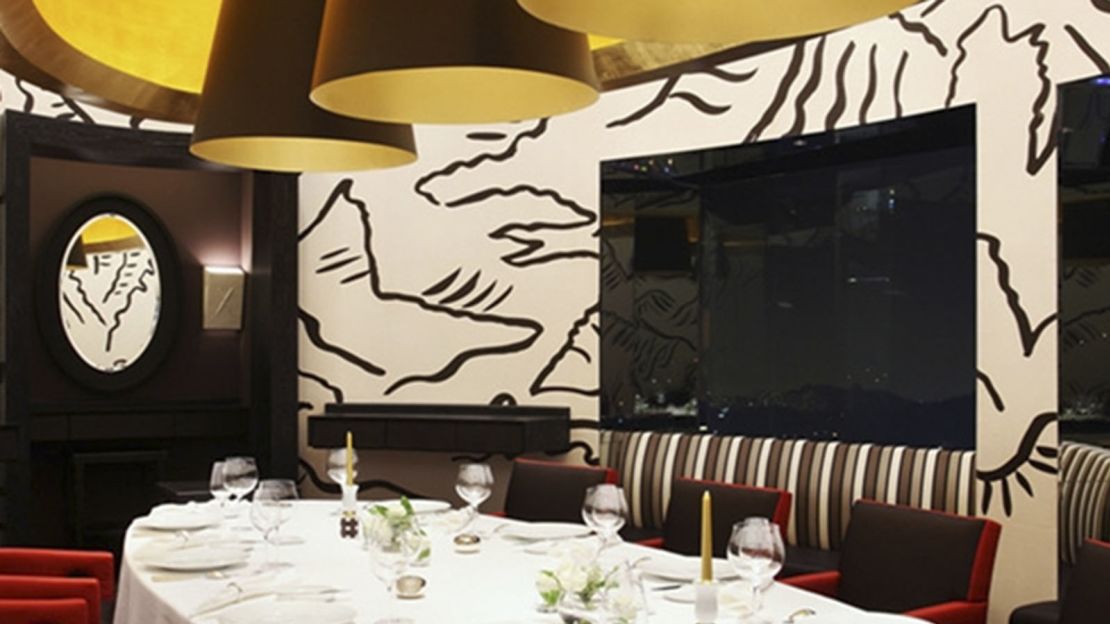
For shopping, Myeongdong is more than sufficient. Clothes in Myeongdong aren’t just sold inside shops – they’ve spilled out onto the street, with vendors and carts parked in the middle of the street hawking leggings, jeggings, hats, handbags, scarves and shoes. But for luxury shopping, you have to get a bit more specific.
And you can’t get more specific than the glitzy mother of department stores, the 32-year-old Myeongdong Lotte Department Store.
Lotte Department Stores can be found all over Seoul – and South Korea. But the Myeongdong Lotte is Lotte’s first and flagship store for a reason. With perks for international travelers such as a duty-free shop on the 10th floor and conveniences like interpretation services and personal lockers (for your haul from hardcore shopping, round one), it’s no wonder that the place is so jam-packed with glittery-eyed shoppers.
Beaker
Another lifestyle store beloved by Seoul residents for stocking foreign brands like Rag & Bone or Helmut Lang. But while it’s true that some of the deceptively simple items on display can go for millions of won, the place doesn’t discriminate against cuter, less expensive items that cost closer to ?10,000 ($10), and also stocks local brands, kitchen accessories, and stationery.
The interior is also a visual treat, and while only design and fashion fanatics might consider the place a must-see, this Cheil (a Samsung subidiary) Industries project often hosts charmingly affected events and makes for a diverting stop on a tour of the Hannam-dong neighborhood, which houses the flagship store. The second location is in Cheongdam.
Beaker, 738-36 Hannam-dong, Yongsan-gu (??? ??? 738-36); +82 70 4118 5216
Cheongdam location: 78-6 Cheongdam-dong, Gangnam-gu (??? ??? 78-6); +82 2 543 1270
Culture / History
Korea Furniture Museum
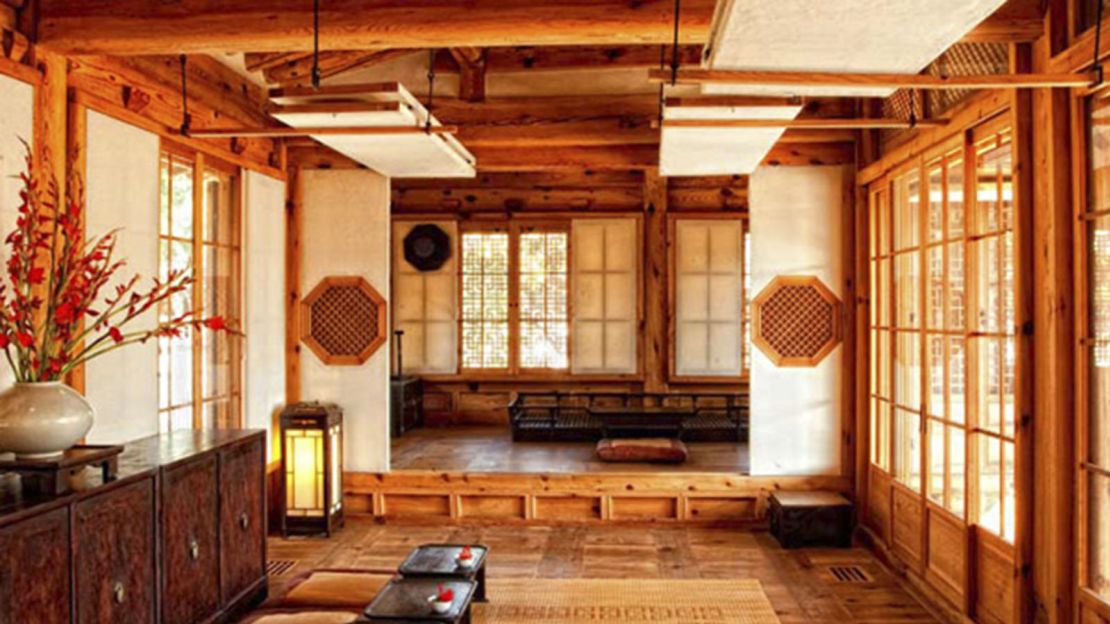
For visitors who don’t have much time to explore Seoul’s palace walls or national museums, the Korea Furniture Museum offers the best of both. The museum has 10 hanok structures and houses some 2,000 furniture pieces from the Joseon Dynasty collected by former professor and museum director Chyung Mi-sook.
Each piece of furniture is a work of art, something you won’t easily find in other public or private museums around the city. Martha Stewart and former chief designer for BMW Group Chris Bangle are fans.
Bukchon Hanok Village
This quaint and picturesque residential neighborhood of narrow streets and 600 years of history is best known for its hanok (traditional Korean houses with gracefully curving roofs and sliding wooden doors).
Most of the hanok are private residences, but that’s what makes the place so popular – it’s no cheap and sterile movie set for tourists. People still live in these ridiculously pretty houses. If walking and looking isn’t enough, lodged between the residences are cafés, galleries, teahouses, guesthouses and culture centers.
The Bukchon Culture Center, a former residential hanok, now hosts classes in traditional Korean crafts, such as calligraphy, tea ceremony and embroidery.
Changdeokgung
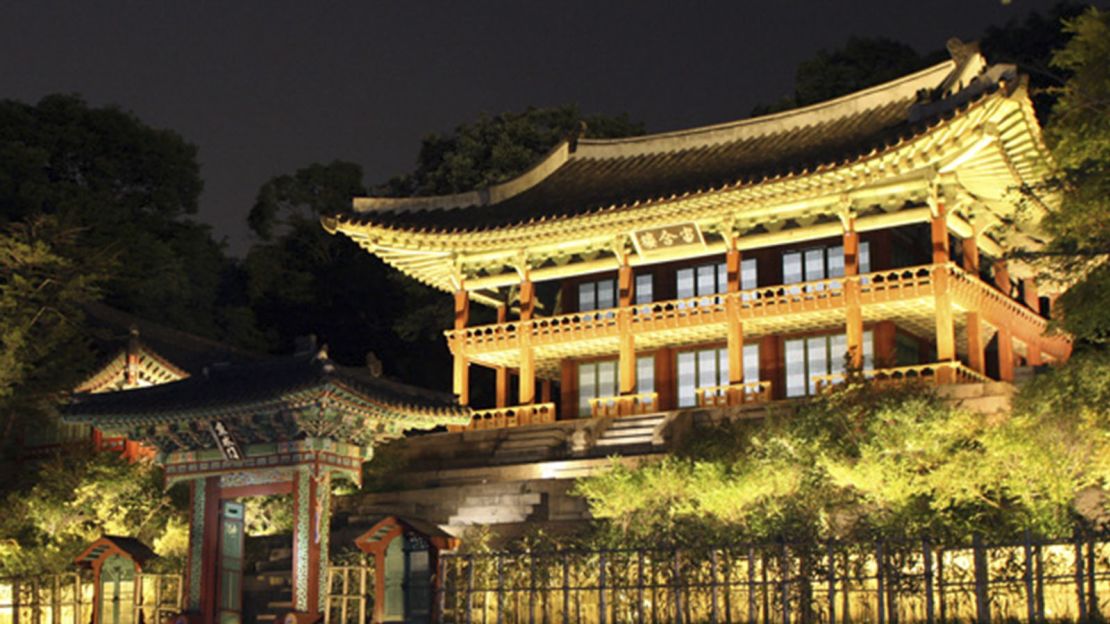
One of the “Five Grand Places” in Seoul dating from the Joseon Dynasty, Changdeokgung may have been the secondary palace in the royal pecking order (beneath the larger Gyeongbokgung), but for many Joseon princes it was the favored palace. Walk through and it’s not difficult to see why.
This UNESCO World Heritage site is as exquisite as it is exquisitely preserved, with stunning East Asian architecture and lovely gardens.
Changdeokgung is best known for its uniquely East Asian landscaping – specifically, the organic way in which the gardens blend into the regional topography. Instead of artificially trimmed hedges and beds of flowers in military-straight rows, you’ll find 300-year-old trees and unassuming pavilions.
